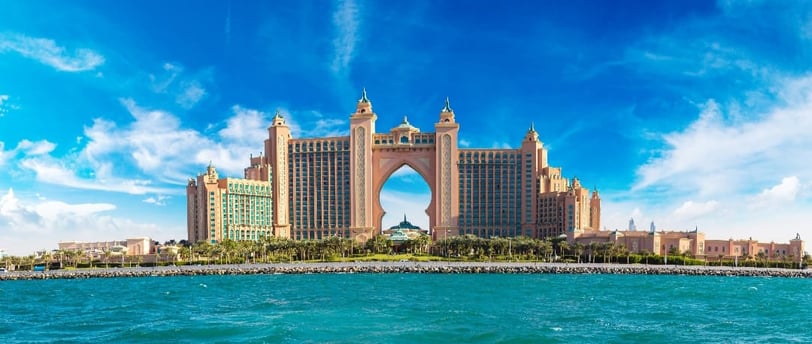ABOUT DUBAI
Dubai is a city that blends tradition with modernity, offering a unique experience that attracts visitors and businesses from around the world. Its rapid growth and development have positioned it as a leading global city in various sectors.


Dubai is one of the seven emirates that make up the United Arab Emirates (UAE). It's located on the southeastern coast of the Persian Gulf and is renowned for its modern architecture, luxury shopping, and vibrant nightlife. Here’s a detailed look at various aspects of Dubai:
1. Geography and Climate
- Location: Dubai is situated in the southeastern part of the Arabian Peninsula, along the coast of the Persian Gulf.
- Climate: The city experiences an arid desert climate. Summers are extremely hot, with temperatures often exceeding 40°C (104°F), while winters are mild and pleasant, with temperatures ranging from 14°C to 24°C (57°F to 75°F).
2. History
- Foundation: Dubai's history dates back to the early 18th century. It was originally a small fishing village known for its pearling industry.
- Modernization: The discovery of oil in the 1960s transformed Dubai from a modest town into a global city. The emirate diversified its economy beyond oil, investing in real estate, tourism, and finance.
3. Economy
- Diversification: While oil has been a significant part of Dubai’s economy, the emirate has successfully diversified into sectors like tourism, real estate, aviation, and financial services.
- Free Zones: Dubai has several free trade zones, such as Jebel Ali Free Zone, which offer attractive incentives for businesses, including tax exemptions and 100% foreign ownership.
4. Architecture and Landmarks
- Burj Khalifa: The tallest building in the world, standing at 828 meters (2,717 feet). It features observation decks with stunning views of the city.
- Burj Al Arab: A luxury hotel designed to resemble a sail. It’s known for its opulence and is one of the most iconic symbols of Dubai.
- Palm Jumeirah: An artificial archipelago shaped like a palm tree, featuring luxury residences, hotels, and entertainment venues.
- Dubai Marina: A man-made canal city with a skyline of high-rise buildings, residential apartments, and a vibrant waterfront.
5. Culture and Society
- Multiculturalism: Dubai is home to a diverse population, with expatriates making up a significant portion of the residents. The city is known for its cosmopolitan atmosphere.
- Traditional Elements: Despite its modernity, Dubai maintains aspects of its traditional Arab culture, evident in its souks (markets), festivals, and architectural styles.
- Language: Arabic is the official language, but English is widely spoken and understood.
6. Tourism
- Shopping: Dubai is famous for its luxury shopping malls such as The Dubai Mall, Mall of the Emirates, and traditional souks like the Gold Souk and Spice Souk.
- Entertainment: The city offers a range of activities, from desert safaris and water parks to world-class dining and nightlife.
- Events: Dubai hosts numerous events throughout the year, including the Dubai Shopping Festival, Dubai Food Festival, and various international sporting events.
7. Transportation
- Public Transport: The city has a well-developed public transport system, including the Dubai Metro, buses, and water taxis. The Dubai Metro is known for its efficiency and modernity.
- Roads: Dubai's road network is extensive, with highways connecting various parts of the city and the wider UAE.
8. Real Estate
- High-end Properties: Dubai is known for its luxury real estate market, featuring iconic developments like the Burj Khalifa and various high-end residential communities.
- Investment Opportunities: The city offers numerous investment opportunities in both residential and commercial real estate.
9. Education and Healthcare
- Education: Dubai has a range of international schools offering curricula from various countries, including British, American, and International Baccalaureate systems.
- Healthcare: The city boasts a high standard of healthcare services, with numerous private and public hospitals and clinics.
10. Governance
- Leadership: Dubai is governed by Sheikh Mohammed bin Rashid Al Maktoum, the ruler of Dubai and Vice President and Prime Minister of the UAE.
- Legal System: Dubai’s legal system combines aspects of Sharia (Islamic law) with civil law. The city has separate judicial branches for civil, criminal, and commercial matters.
11. Sustainability and Innovation
- Sustainable Projects: Dubai is investing in sustainable development, with projects like the Mohammed bin Rashid Al Maktoum Solar Park and green building initiatives.
- Smart City: The emirate is working towards becoming a “smart city” by integrating technology into urban infrastructure and services.
Dubai is a city that blends tradition with modernity, offering a unique experience that attracts visitors and businesses from around the world. Its rapid growth and development have positioned it as a leading global city in various sectors.






